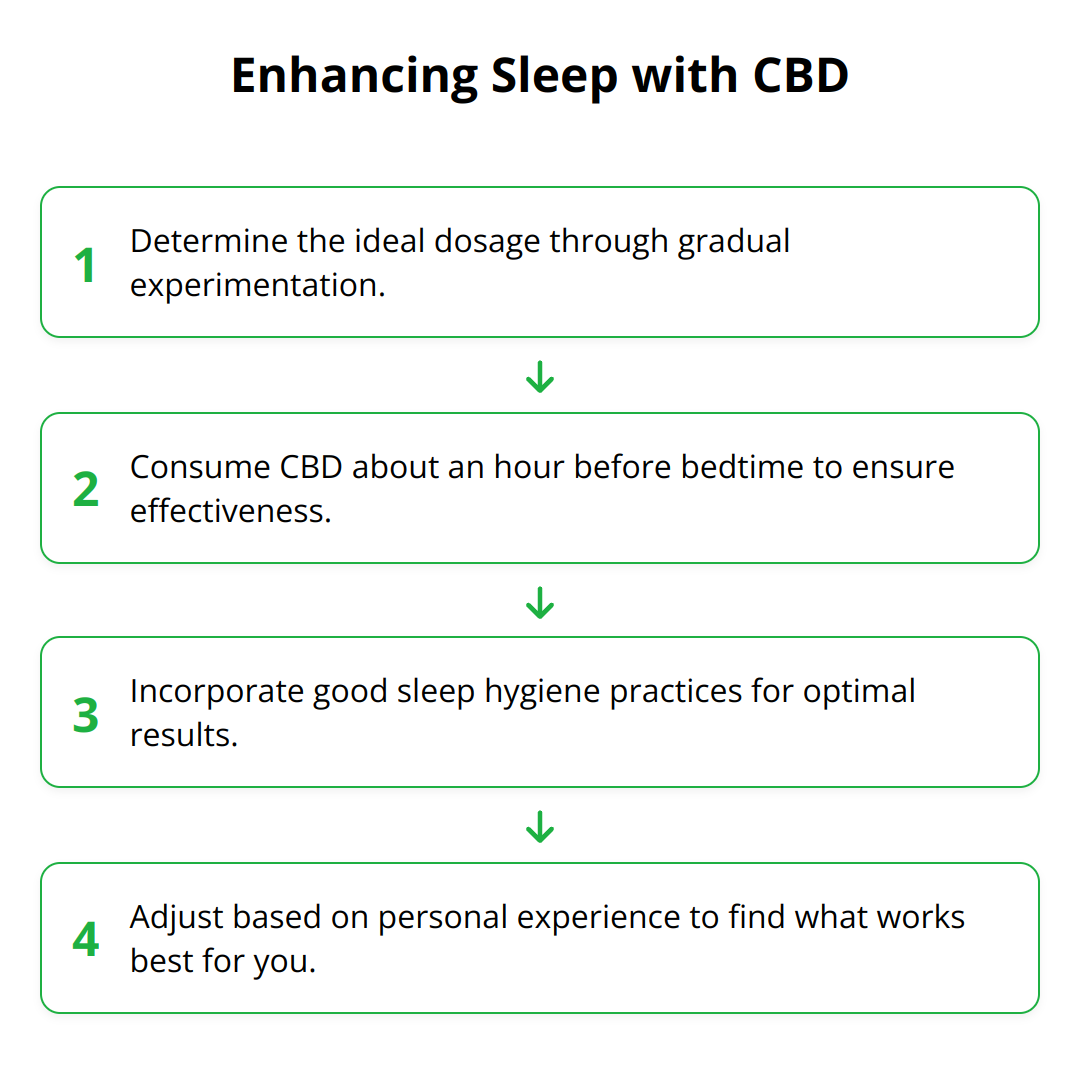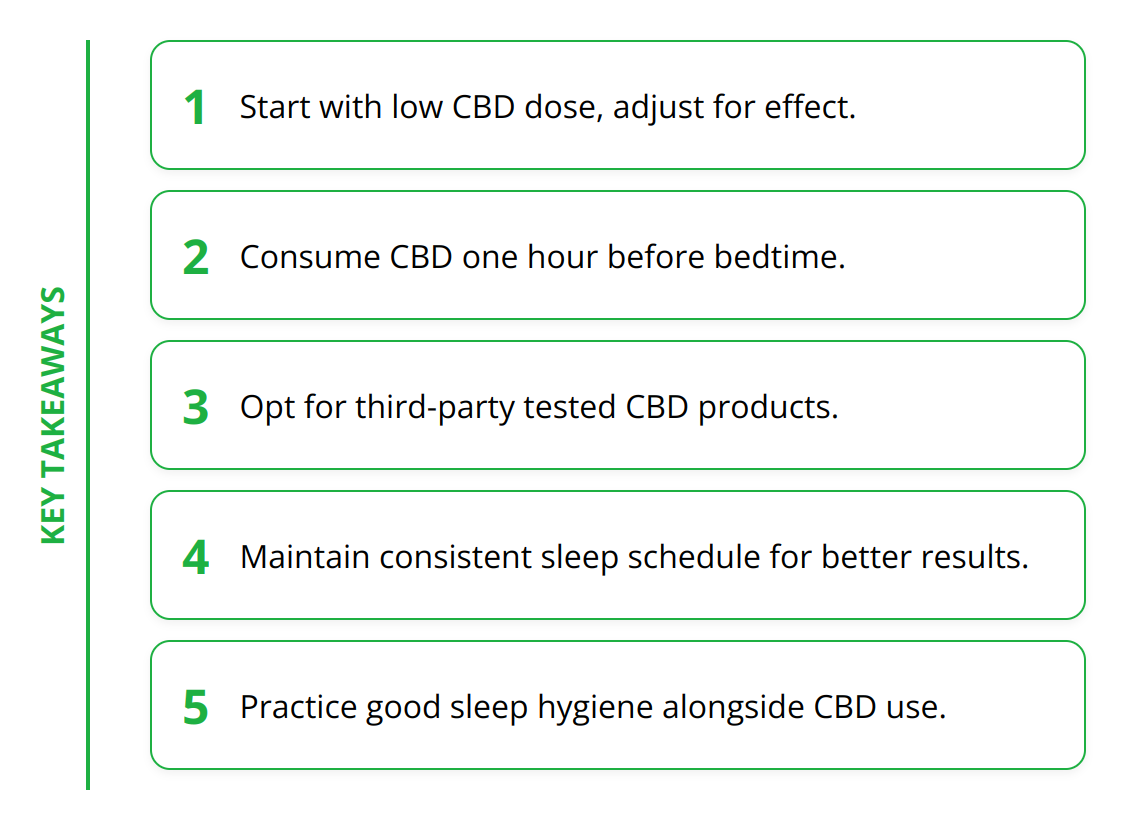Sleepless nights can take a toll on anyone’s well-being, making the search for effective remedies more important than ever. We at Pure Hemp Essentials understand the significance of a good night’s rest. In this post, we explore how CBD, a natural compound found in hemp, might offer a solution for those battling insomnia. Dive into the science and practical advice on using CBD to potentially improve your sleep cycle.
How Does CBD Influence Sleep?
Cannabidiol, commonly referred to as CBD, is a compound found in the hemp plant. It has caught the attention of many for its potential health benefits, particularly in improving sleep quality. Unlike its cousin THC, CBD is non-psychoactive, meaning it doesn’t cause a high. This makes it an appealing option for those seeking to improve their sleep without the psychoactive effects associated with cannabis.
CBD works by interacting with the body’s endocannabinoid system, which plays a significant role in maintaining balance and stability in the body, including sleep regulation. It is thought that CBD may help address issues like anxiety and pain, which can interfere with restful sleep. This interaction with the endocannabinoid system can have a calming effect on the brain and body, potentially leading to improved sleep patterns.
Research into CBD and its effects on sleep is still in early stages, but some studies suggest promising results. A notable study involved 72 adults with concerns about anxiety or poor sleep. After one month of CBD use, 66.7% of participants reported improved sleep scores. It’s essential to note that while these results are encouraging, more extensive and controlled studies are necessary to fully understand CBD’s impact on sleep.

When considering CBD for sleep, it’s important to start with a low dose and gradually increase it to find the most effective amount for individual needs. Since factors such as body weight, the nature of sleep problems, and the type of CBD product can influence its effectiveness, personal experimentation is key.
Practical tips for those considering CBD for insomnia include:
-
Consulting a healthcare professional before starting, especially if you’re taking other medications.
-
Opting for high-quality CBD products from reputable sources to ensure safety and efficacy.
-
Paying attention to product labeling for CBD concentration and third-party testing to verify purity.

For more detailed advice on dosing and the different types of CBD products available, explore our guides on CBD dosage and CBD herbal supplements.
Remember, while CBD shows promise as a natural aid for improving sleep, individual experiences may vary. Tracking your sleep patterns before and after starting CBD can help gauge its effectiveness for you personally.
Choosing CBD Forms for Better Sleep
Exploring the different forms of CBD is vital in selecting the best approach to combat insomnia. Personal preference, convenience, and absorption rates are key factors in this decision-making process. Each form of CBD has its unique benefits and uses, tailored to match individual needs for improved sleep quality.
CBD Oils and Tinctures
CBD oils and tinctures stand out for their versatility and rapid absorption. Administered sublingually, they enter the bloodstream quickly, offering faster relief than some other forms. The ability to adjust dosages drop by drop allows for precise control over intake, making oils and tinctures ideal for those seeking immediate effects. For newcomers, starting with a small dosage and gradually increasing based on personal response can lead to finding the optimal balance for enhancing sleep.
CBD Capsules and Pills
For those who prefer convenience and consistency, CBD capsules and pills are an excellent choice. They eliminate the guesswork in dosing, providing a pre-measured amount of CBD in each capsule. This form is particularly appealing for those with a busy lifestyle or those who do not favor the taste of CBD oil. Since capsules and pills pass through the digestive system, the onset of effects can take longer, but the ease of use and consistency in dosage often outweigh this factor.
Topical Forms and Their Uses
Though not as commonly associated with sleep improvement as ingestible forms, CBD topicals have their place in a nighttime routine. Products such as creams, lotions, and balms can be applied directly to the skin, providing targeted relief from physical discomfort that may hinder sleep, such as muscle tension or joint pain. Incorporating CBD topicals into a pre-sleep ritual can aid relaxation, indirectly fostering better sleep quality.

Choosing the Right Form:
-
Consider personal preference and lifestyle when selecting a CBD form.
-
Start with low dosages and gradually adjust to find the most effective amount.
-
Explore third-party tested products to ensure quality and safety.
To deepen your understanding of how CBD dosage influences sleep and how to navigate the array of products, visiting our guides on CBD dosage guidance and the benefits of CBD herbal supplements can provide valuable insights.
In summary, selecting the appropriate form of CBD for insomnia hinges on personal needs, the preferred speed of onset, and convenience. Whether choosing oils for their rapid action, capsules for ease and consistency, or topicals for targeted relief, the aim is to enhance sleep quality efficiently and safely. Remember, individual experiences may vary, and what works best for one person might not for another.
Optimizing CBD for Sleep
When it comes to improving sleep with CBD, finding the right dosage and the best moment to take it, combined with adopting good sleep hygiene practices, can significantly enhance its effectiveness. The goal is to create an environment and routine that signals your body it’s time to wind down, augmented by the potential sleep-promoting benefits of CBD. Here are some actionable steps to making the most out of using CBD for sleep improvement.
Determining the Ideal Dosage
One of the most critical steps in using CBD to improve sleep is identifying the ideal dosage. Since individual responses to CBD can vary, it’s essential to approach dosing with a mindset of gradual experimentation. Start with a lower dose and incrementally increase it until you find the point at which you experience better sleep without any undesirable side effects. This could mean beginning with a dose as low as 10-25mg of CBD per day and adjusting from there based on your experiences.
Timing Matters
The timing of your CBD intake can play a crucial role in its effectiveness for sleep. Generally, it’s advisable to consume CBD about an hour before bedtime, giving it time to work its way into your system. However, depending on the form of CBD you choose (oils, capsules, edibles), the onset time can vary, so adjust your timing accordingly. For example, CBD oils may require less time to become effective compared to edibles that need to be digested.
Enhancing CBD with Sleep Hygiene
CBD can be more beneficial when it’s part of a broader approach to improving sleep that includes practicing good sleep hygiene. Here are some tips to create an optimal sleep environment and routine:
-
Maintain a consistent sleep schedule: Go to bed and wake up at the same time every day, even on weekends.
-
Create a restful environment: Ensure your bedroom is cool, quiet, and dark. Consider using blackout curtains or white noise machines if needed.
-
Limit screen time: Avoid screens at least an hour before bed to reduce blue light exposure, which can interfere with your ability to fall asleep.
-
Relax before bedtime: Develop a pre-sleep routine that helps you unwind, such as reading a book, taking a warm bath, or practicing relaxation exercises.
-
Stay active: Regular physical activity during the day can help you fall asleep more easily at night. However, avoid vigorous exercise close to bedtime.

For those looking to incorporate CBD into their sleep routine effectively, exploring our guide on managing anxiety naturally can offer additional insight into how relieving anxiety can directly benefit sleep quality.
Combining CBD with these practical tips doesn’t just offer a band-aid solution; it addresses the core issues disrupting sleep. By experimenting to find your ideal CBD dosage and timing, and embracing a lifestyle that promotes good sleep hygiene, you’re setting the stage for more restful nights and energized days.
Wrapping Up
Exploring the potential of CBD for insomnia has uncovered its ability to interact with the body’s endocannabinoid system, possibly offering a natural alternative to traditional sleep aids. It stands out for its capacity to address the underlying issues that often disrupt sleep, such as anxiety and pain, without the psychoactive effects associated with THC. The anecdotal evidence and preliminary research discussed highlights CBD’s promise in improving sleep quality and duration for those struggling with insomnia.

We encourage exploring CBD as an alternative sleep aid, given its potential benefits and the growing body of supportive evidence. Opting for high-quality CBD products, like those offered by Pure Hemp Essentials, ensures you’re getting a product you can trust. With a range that includes everything from CBD oils to CBD+ Melatonin Softgels, tailored to enhance your sleep experience, there’s something for everyone looking to improve their nighttime routine.
However, it is paramount to consult with a healthcare provider before starting any new supplement, including CBD. Professional guidance can help you navigate dosage, form, and timing to maximize the sleep benefits while considering any potential interactions with existing medications or health conditions.
In conclusion, CBD holds considerable promise as a natural aid for combating insomnia and improving overall sleep quality. By taking an informed and mindful approach, you could potentially unlock a more restful and rejuvenating sleep cycle.
